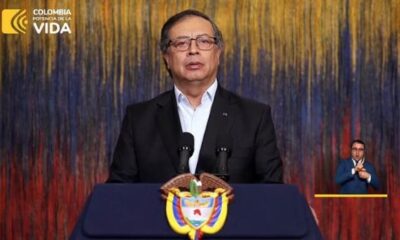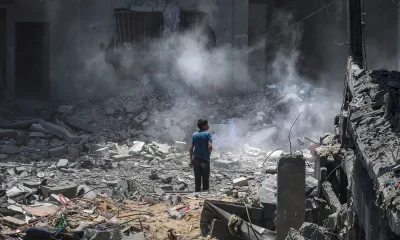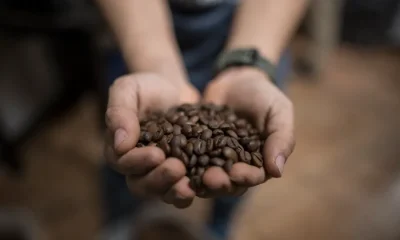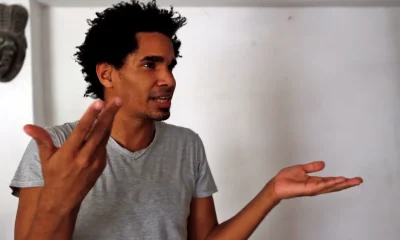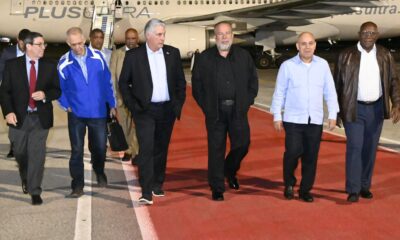International
Cuban President urges to redouble efforts in economic battle
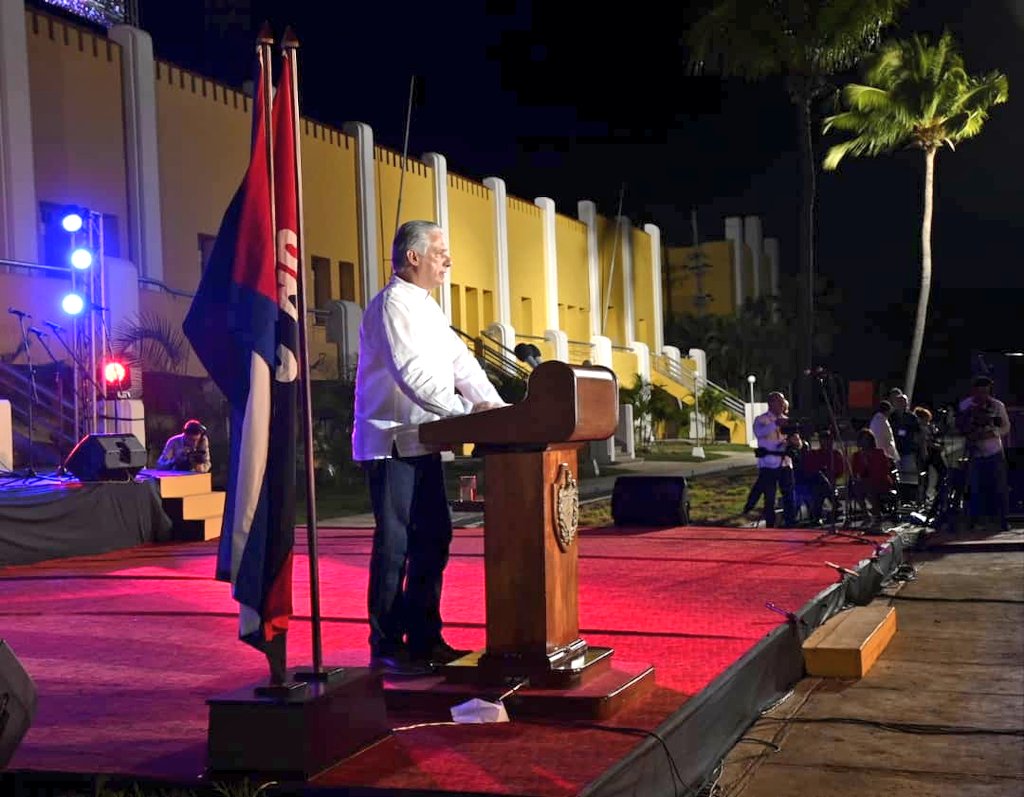
July 26 |
Cuban President Miguel Díaz-Canel Bermúdez expressed on Wednesday that the duty of the generations responsible for the immediate destiny of the Revolution is to maintain what has been conquered and advance further, and denounced once again the criminal nature of the economic, commercial and financial blockade imposed on the Caribbean nation by the United States (U.S.).
During the central act for the 70th anniversary of the assault on the Moncada and Carlos Manuel de Céspedes barracks, National Rebellion Day, the head of state said that as long as a degree of dignified prosperity for all Cubans is not reached, there will be a Moncada to be assaulted.
Referring to the battle on the economic front, one of the fundamental challenges of the Revolution, he recalled that the Cuban people are waiting for answers on issues that affect the standard of living and the daily life of all, which he said can be resolved without waiting for the U.S. to lift the blockade of more than six decades.
Among them, he mentioned the need to increase the supply of consumer goods to combat inflation. He considered that this is “a difficult Moncada that we have the duty to assault here and throughout the country”. Every day, every hour, every minute, we have a Moncada to storm, he pointed out.
Referring to the transcendence of July 26, 1953, he stressed that “the actions of that day were the beginning of the end of the last dictatorship installed in Cuba with the recognition and the immoral and material support of the U.S.”.
He stressed that for that reason Washington does not forgive the Revolution, in addition to the fact that the Cuban people did not allow it “to break national independence, international solidarity, the defense of the socialist alternative to savage capitalism”, as they thought would happen after the physical disappearance of the historic generation.
He pointed out that since 1959 “we are much more than a few dozen brave young people against the tyranny of (Fulgencio) Batista. Since that date we are a people who defend the Revolution and socialism as the fairest way to achieve the fairest society for all”.
Referring to another singular challenge, the U.S. blockade, he pointed out that imperialism is the natural enemy of the right to self-determination of the peoples and of those governments interested in developing programs of social justice and exercising sovereignty in their foreign policy.
He emphasized that the governments of that country have shown themselves to be more aggressive and intolerant when they realize that there is no force in the world capable of provoking the Cuban people to renounce the Marxist, Marti and Fidelist ideals that inspire the untiring struggle for the greatest possible social justice.
He assured that this explains the severity of the blockade and the current validity of the reinforcement measures established by the Administration of Donald Trump (2017-2021) and maintained by that of Joe Biden, in a more aggressive and harmful dimension.
He denounced five pressure measures imposed by the U.S. that stand out for their perversity and harmfulness to the Cuban economy and population:
The inclusion of Cuba on the list of States that allegedly sponsor terrorism; the application of the provision of Title III of the Helms-Burton Act that allows actions to be taken in U.S. courts against businessmen from other countries who decide to establish ties and investments in Cuba.
The persecution of fuel supplies that Cuba needs to acquire; – the president continued – the persecution of medical services provided by Cuban specialists in dozens of nations; and the existence of a list of Cuban entities with which U.S. citizens are prohibited from having ties.
Díaz-Canel reiterated that the Revolution is not isolated, but that the US isolates itself by maintaining its hostility, as confirmed every year by the generalized rejection of the blockade policy by the international community. He also acknowledged the expressions of solidarity received by Cuba from various nations.
International
New York Announces First 2,000 Seats in Universal 2-K Program
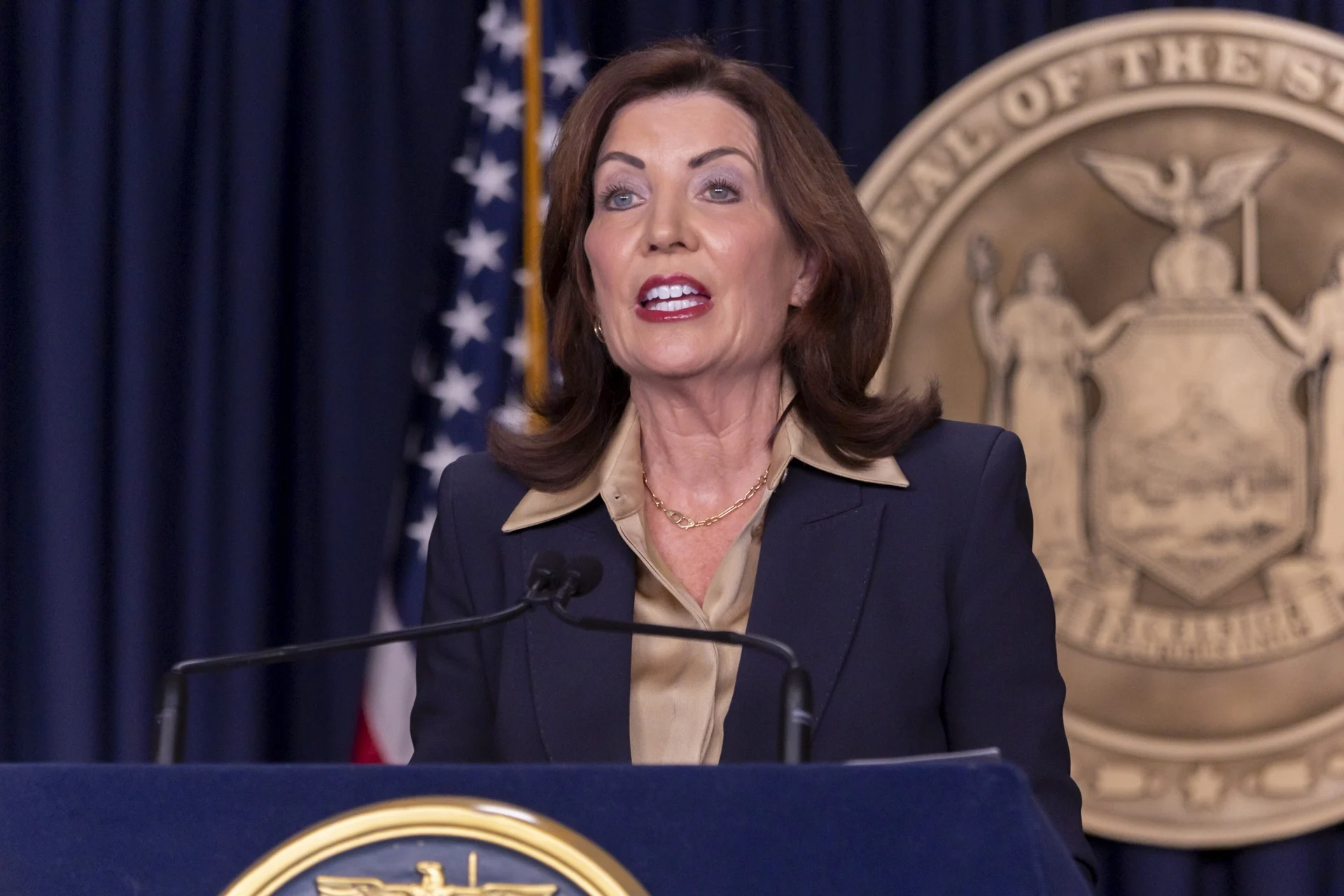
The Governor of New York, Kathy Hochul, and New York City Mayor Zohran Mamdani took another step today in their universal early education agenda by announcing the communities that will have access to the first 2,000 seats in the new 2-K program this fall — an initiative backed by a $73 million investment.
The funding is part of the $1.2 billion package previously unveiled by Hochul to strengthen child care and early childhood education across the city, one of the key campaign promises of the now Social Democratic mayor.
At the time of the announcement, the governor also outlined additional funds to reinforce the existing 3-K early education infrastructure, a program launched under former Mayor Bill de Blasio (2014–2021).
When the 2-K initiative was introduced in January, Mayor Mamdani explained that its first phase would offer 2,000 seats, with the goal of eventually expanding into a universal program — a commitment supported by the governor.
State investment in child care and preschool services is expected to increase to $4.5 billion by fiscal year 2027.
Among the first communities set to benefit from the 2,000 seats are Upper Manhattan and Inwood — areas with large Dominican populations — as well as Fordham and Kingsbridge in the Bronx, a borough with a Latino majority.
In East Brooklyn, Canarsie, Brownsville, and Ocean Hill will also be included. Meanwhile, Ozone Park and the Rockaways are among the neighborhoods that will see the rollout of the 2-K program.
International
Warner Bros. Developing First ‘Game of Thrones’ Movie With ‘Andor’ Writer
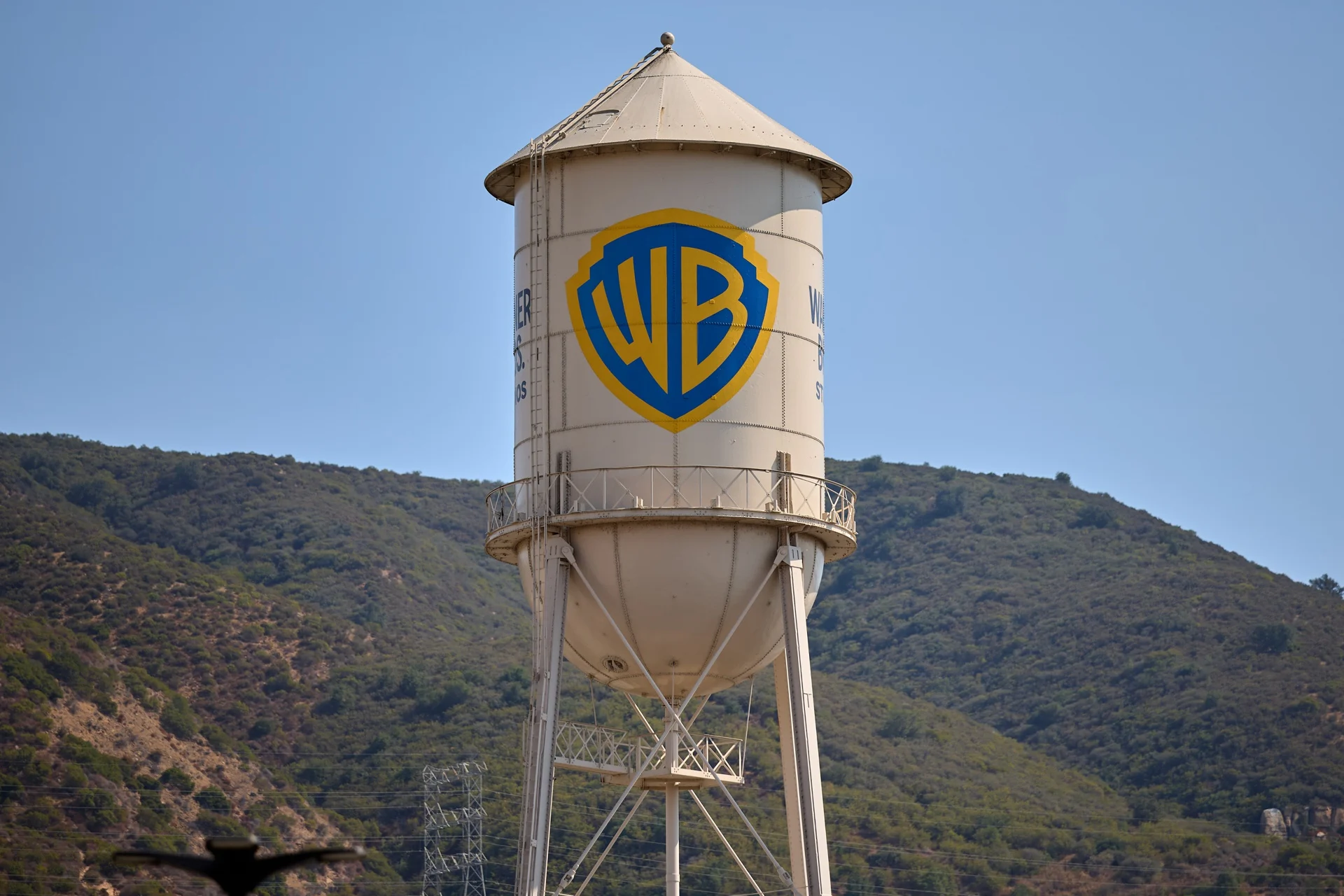
Warner Bros. is developing the first feature film based on the hit saga Game of Thrones, with Beau Willimon — screenwriter of Andor — attached to direct, according to a report published Tuesday by Page Six.
The project, currently in early development, will focus on the conquest of King Aegon I Targaryen. A separate television adaptation centered on the same historical storyline within the franchise is also in early stages at HBO.
However, the outlet noted that it remains unclear whether the film will move forward following the recent acquisition of Warner Bros. Discovery by Paramount Skydance.
If the merger is finalized, the movie could potentially be shelved, although that scenario appears unlikely given that the Game of Thrones franchise remains one of HBO’s most valuable and beloved properties.
After six seasons adapting the work of George R. R. Martin, the platform expanded the universe with House of the Dragon, a prequel series set 200 years before the events of Game of Thrones that explores the history of House Targaryen.
International
Spain’s Prime Minister to Address Nation Amid Trump’s Trade Threats

The Prime Minister of Spain, Pedro Sánchez, will deliver an institutional address this Wednesday at the Moncloa Palace regarding the escalating situation in the Middle East and recent threats directed at Spain by U.S. President Donald Trump.
The Spanish government announced that Sánchez will make a statement at 9:00 a.m. local time to outline his position on the latest developments following the U.S. and Israeli attacks on Iran.
Sánchez is expected to reiterate Spain’s reasons for opposing the use of U.S. military bases on Spanish soil in the operation—an action he has already described as being outside international law—while also expressing criticism of the Iranian regime.
Government sources indicated that the address had been planned prior to Trump’s remarks criticizing Spain’s stance. However, following those comments, Sánchez is now also expected to respond directly to the U.S. president’s statements.
Trump has threatened to “cut all trade with Spain” and said he wants “nothing to do” with the country after Madrid refused to authorize the use of the Morón and Rota military bases in southern Spain for operations against Tehran.
The U.S. president also labeled Spain “a terrible NATO partner” and warned that “no one” would tell him he could not use the facilities.
In response, the Spanish government stated that Spain fulfills its commitments to NATO and European defense. It also warned Trump that any review of bilateral trade relations must respect international law and the agreements in place between the European Union and the United States.
-

 International2 days ago
International2 days agoIran Reports 201 Dead, 747 Injured After U.S. and Israeli Strikes
-

 International2 days ago
International2 days agoPope Leo XIV Urges End to ‘Spiral of Violence’ in Middle East
-

 International4 days ago
International4 days agoTrump Floats “Friendly Takeover” of Cuba Amid Rising Tensions
-

 Sin categoría3 days ago
Sin categoría3 days agoTrump: ‘We Think It’s True’ Amid Claims Iran’s Supreme Leader Was Killed
-

 International3 days ago
International3 days agoSecurity Council to Hold Emergency Meeting on Middle East Crisis
-

 International1 day ago
International1 day agoBrazil’s Supreme Court Rejects Bolsonaro’s Bid for House Arrest
-

 International4 days ago
International4 days agoArgentina’s Senate Reviews Milei-Backed Labor Overhaul
-

 International1 day ago
International1 day agoAnti-ICE Billboard Campaign Targets Immigration Spending in 31 U.S. Cities
-

 International1 day ago
International1 day agoTrump Warns of ‘Major Wave’ of Attacks as Iran Conflict Escalates
-

 International1 day ago
International1 day agoMexico Calls for Immediate Probe After National Dies in ICE Custody
-

 Central America1 day ago
Central America1 day agoPanama Canal Monitoring Trade as Middle East Conflict Disrupts Shipping
-

 International1 day ago
International1 day agoBolivia Orders Three Investigations Into Deadly Military Plane Crash
-

 International9 hours ago
International9 hours agoSpain’s Prime Minister to Address Nation Amid Trump’s Trade Threats
-

 International9 hours ago
International9 hours agoNew York Announces First 2,000 Seats in Universal 2-K Program
-

 Central America9 hours ago
Central America9 hours agoGuatemala’s Attorney General Fails in Bid for Top Court Seat Amid Corruption Allegations
-

 International9 hours ago
International9 hours agoWarner Bros. Developing First ‘Game of Thrones’ Movie With ‘Andor’ Writer



























